Class XI (Hornbill) Chap.-2 "We’re Not Afraid to Die… if We Can All Be Together" by (Hornbill) by Gordan Cook and Alan East,
Class 11 English (Hornbill book)
Chapter 2- “We’re Not Afraid to Die… if We Can
All Be Together”
By Gordon Cook and Alan East
Introduction of the Lesson
Written by Gordan Cook and Alan East, the story is about a 37 year old businessman who is the narrator of the story. He has a wife named Mary and two children, Jonathan, aged 6 and Suzanne, aged 7. He and his wife both dream of a voyage around the world on their ship ‘Wave walker’ which is a 23 meter long, 30 ton wooden-hulled, just like that of the famous Captain James Cook.
“About the Author”
✍️ : Gordon Cook and Alan East
• Gordon Cook and Alan East are the co-authors of this real-life adventure narrative.
• Gordon Cook was a professional sailor and adventurer who undertook a round-the-world voyage with his family.
• Alan East helped him document this incredible journey of courage and survival.
• The story was first published in a magazine and later adapted for educational purposes.
• Their writing highlights the power of human endurance, family bonding, and the will to survive against all odds.
• The narrative is inspirational, based on true events, and emphasizes themes of unity, leadership, and emotional strength.
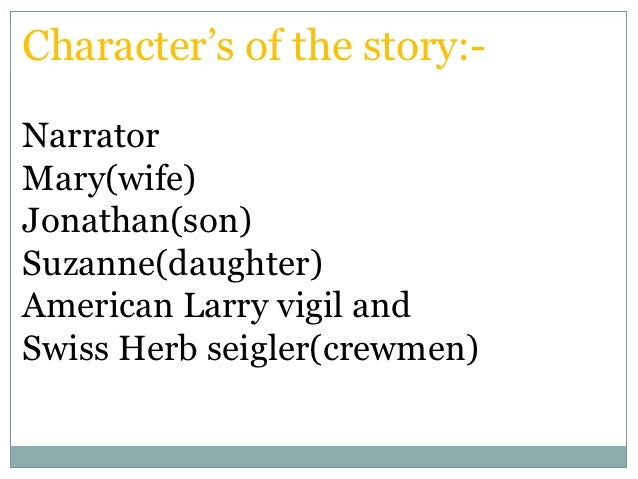
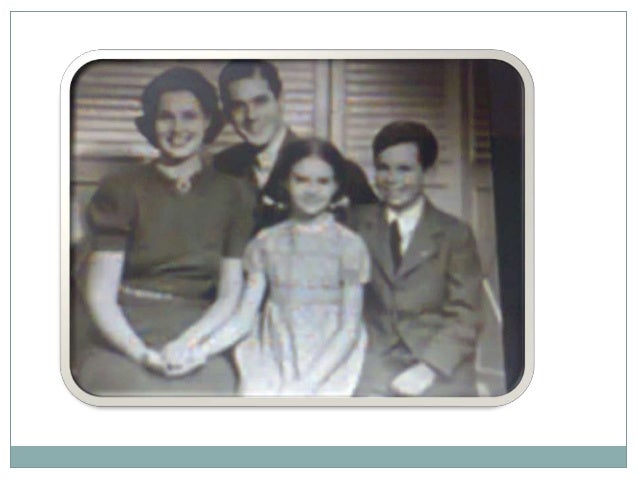
The whole family started sailing from Plymouth, England on July 1976. The initial phase of the three-year-long journey was from Africa to Cape Town. It was pleasant. While heading east, along with two newly hired crewmen, strong waves hit them and their survival became a question. The story tells us about how they fought each day and survived till the end.
![Captain JamesCook, FRS, RN (7November1728[NB 1] – 14February 1779)was a Britishexplorer, navigatorand cartographerwho ulti...](https://image.slidesharecdn.com/wearenotafraidtodie-121028101237-phpapp02/95/we-are-not-afraid-to-die-2-638.jpg?cb=1351419623)
“We’re Not Afraid to Die… if We Can All Be Together” -Summary
The narrator and his wife plan a voyage around the world just like famous Captain James Cook. They have been preparing and perfecting their seafaring skills for the past 16 years. They get a ship which is 23 meters long and weighs 30 tons wooden-hulled, named Wave Walker. They test it in the rough weather for months.
The weather changes for the worse and on January 2, the big waves hit them. They try to slow the ship down by dropping storm jib and hit a heavy mooring rope in a loop across a stern but it doesn’t help much. They carry their life-raft drill, attach lifelines, don life jackets and oilskins.
Later, in the evening, a vertical and huge wave strikes the ship and the narrator is thrown off from the ship. He accepts his ‘approaching death’ and starts losing consciousness. When the ship is about to overturn, a huge wave hit again and turns it right back. He suffers injuries in ribs and mouth. He grabs the guard rail and sails into the ship’s main boom.
He instructs his wife Mary to guard the wheel as he realizes that the ship has water in the lower parts. His crewman starts pumping out the water. The narrator goes to his children’s cabin and checks on them. His daughter, Sue, informs him about a bump on her head which he ignores because his major concern is to save the ship.
The narrator does water-proofing on the gaping holes. This makes water to deviate on the right side. The hand pump gets blocked due to debris and electric-pump gets short-circuited. However, he later finds a spare electric pump and connects it to drain the water. They all keep pumping the water all night long. Their Mayday calls are not answered as they are in the remotest corner of the world.
Sue, on the other hand, has now a swollen black eye and a deep cut in her arm. On being asked by her father about her injuries, she tells him she didn’t want him to worry as he was trying to save them. After 15 hours the situation gets under control. The narrator decides to work in rotation and rests. The water levels are controlled but the leaks were still there, below the waterline.
The ship is in bad shape now. It is not in a condition to reach Australia, and so, they decide to reach the nearest island, lle Amsterdam, a French Scientific base. As their supporting engines were also damaged, the chances of the ship to reach the destination are low.
After pumping the water out continuously for 36 hours, they took a sigh of relief. Only a few centimeters of water was left to be pumped out of the boat. They hoisted the storm jib as the main mast was destroyed. They ate their first meal in two days, some corned beef and crackers. The weather soon started changing and again the black clouds took over by the morning of January 5. His son, Jonathan, told him that he didn’t fear death as long as they were all together. This filled him with determination to fight the sea.
The struggle continued and the narrator tried his best to protect the weakened starboard side. The same evening, the narrator and his wife sat together holding hands, thinking that their end was near. His children continuously supported him which gave him moral support to keep going.
The Wavewalker sailed through the storm and made it. The narrator then calculated their exact position by working on the wind speed. While he was brainstorming, Sue, gave him a card that she had made expressing her love and gratitude towards the family.
He instructed Larry to steer the course to 185 degrees. He said that if they were lucky, they could hope to find an island by 5 pm. He dozed off and suddenly got up around 6 pm. He believed that they didn’t make it and was disappointed. His son came and informed him about how they reached the lle Amsterdam Island and he called him ‘best daddy’ and ‘best captain’.
They reached the island with little struggle and with the help of inhabitants. The whole team, the family and two crew members, never stopped trying. Their struggle and hard work finally saved them.
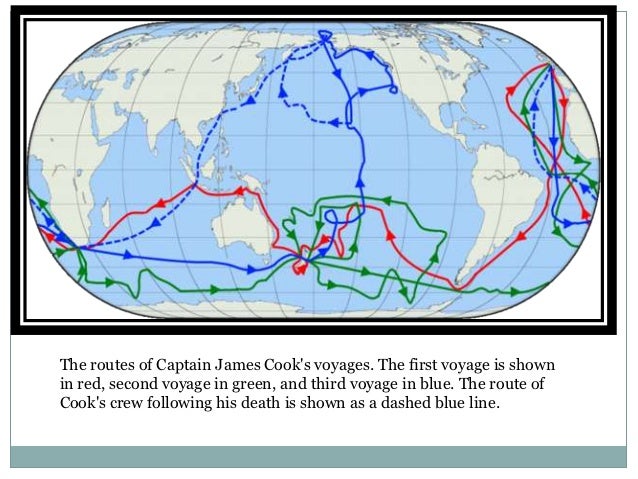
Theme of the chapter
1. Courage and Endurance:
• The chapter highlights the extraordinary bravery of a family and their crew as they face life-threatening storms in the sea.
• Despite the physical and mental exhaustion, they never give up — showing the depth of human resilience.
2. Teamwork and Unity:
• The family and the two crew members support each other selflessly.
• Even the young children show maturity, expressing readiness to die calmly — just to be together.
• This shows how unity gives strength in times of crisis.
3. Hope and Determination:
• No matter how hopeless the situation seems, they continue repairing the boat and navigating through the storm.
• Their never-give-up attitude ultimately leads them to survival.
4. Leadership and Responsibility:
• The narrator (the father) leads with responsibility, making difficult decisions and doing all he can to keep the family alive.
• His sense of duty is a key driving force throughout the ordeal.
5. Human vs. Nature:
• The story showcases the unpredictable and dangerous power of nature, especially the sea.
• But it also emphasizes that while nature is mighty, the human spirit is not easily defeated.
characters and their character sketches
🧑✈️ 1. The Narrator (Gordon Cook)
Role: Protagonist, father, captain of the ship
Character Sketch:
• A brave and determined man who leads his family through a life-threatening sea storm.
• Shows strong leadership, quick thinking, and exceptional sailing skills.
• Despite being injured and exhausted, he doesn’t give up and keeps fighting for his family’s survival.
• Deeply responsible, caring, and emotionally strong, willing to sacrifice himself for his family.
👩🦱 2. Mary (The Narrator’s Wife)
Role: Supportive wife and mother
Character Sketch:
• Calm, composed, and brave during the crisis.
• Helps in steering and navigating the boat when needed.
• Shows emotional strength, supports her husband silently and firmly.
• Symbol of inner strength and family unity.
👧🧒 3. Sue (7-year-old daughter)
Role: Daughter of the narrator
Character Sketch:
• Innocent yet extremely brave and mature for her age.
• Despite being badly injured, she hides her pain to avoid troubling her parents.
• Makes a touching card with a “thank you” message for her father, showing love and courage.
• Symbol of hope, love, and emotional strength in the face of danger.
👦 4. Jonathan (6-year-old son)
Role: Younger son of the narrator
Character Sketch:
• Very young, yet shows remarkable calmness and maturity.
• Says, “We aren’t afraid to die… if we can all be together,” reflecting great emotional strength.
• Shows deep understanding of family love and unity despite his age.
👨✈️👨✈️ 5. Larry Vigil and Herb Seigler
Role: Two experienced crewmen (American sailors)
Character Sketch:
• Courageous, skilled, and loyal.
• Work tirelessly alongside the narrator to keep the boat afloat.
• Show team spirit, solidarity, and great support during the crisis.
• Represent dependable friendship and professional dedication.
TEXT AND WORD MEANING
IN July 1976, my wife Mary, son Jonathan, 6, daughter Suzanne, 7, and I set sail from Plymouth, England, to duplicate the round-the-world voyage made 200 years earlier by Captain James Cook. For the longest time, Mary and I — a 37-year-old businessman — had dreamt of sailing in the wake of the famous explorer, and for the past 16 years, we had spent all our leisure time honing our seafaring skills in British waters. Our boat Wavewalker, a 23 meter, 30-ton wooden-hulled beauty, had been professionally built, and we had spent months fitting it out and testing it in the roughest weather we could find.

The first leg of our planned three-year, 105,000 kilometre journey passed pleasantly as we sailed down the west coast of Africa to Cape Town. There, before heading east, we took on two crewmen — American Larry Vigil and Swiss Herb Seigler — to help us tackle one of the world’s roughest seas, the southern Indian Ocean.
On our second day out of Cape Town, we began to encounter strong gales. For the next few weeks, they blew continuously. Gales did not worry me; but the size of the waves was alarming — up to 15 metres, as high as our main mast.
December 25 found us 3,500 kilometres east of Cape Town. Despite atrocious weather, we had a wonderful holiday complete with a Christmas tree. New Year’s Day saw no improvement in the weather, but we reasoned that it had to change soon. And it did change — for the worse.
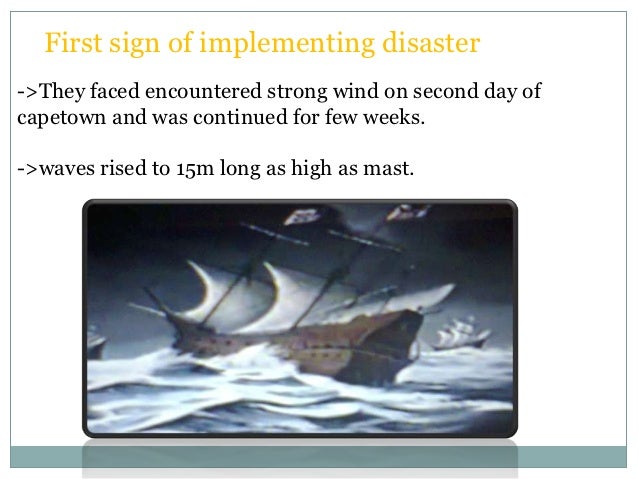
The first indication of impending disaster came at about 6 p.m., with an ominous silence. The wind dropped, and the sky immediately grew dark. Then came a growing roar, and an enormous cloud towered aft of the ship. With horror, I realised that it was not a cloud, but a wave like no other I had ever seen. It appeared perfectly vertical and almost twice the height of the other waves, with a frightful breaking crest.
The roar increased to a thunder as the stern moved up the face of the wave, and for a moment I thought we might ride over it. But then a tremendous explosion shook the deck. A torrent of green and white water broke over the ship, my head smashed into the wheel and I was aware of flying overboard and sinking below the waves. I accepted my approaching death, and as I was losing consciousness, I felt quite peaceful.
Unexpectedly, my head popped out of the water. A few metres away, Wavewalker was near capsizing, her masts almost horizontal. Then a wave hurled her upright, my lifeline jerked taut, I grabbed the guard rails and sailed through the air into Wavewalker’s main boom. Subsequent waves tossed me around the deck like a rag doll. My left ribs cracked; my mouth filled with blood and broken teeth. Somehow, I found the wheel, lined up the stern for the next wave and hung on.
Water, Water, Everywhere. I could feel that the ship had water below, but I dared not abandon the wheel to investigate. Suddenly, the front hatch was thrown open and Mary appeared. “We’re sinking!” she screamed. “The decks are smashed; we’re full of water.” “Take the wheel”, I shouted as I scrambled for the hatch.
Larry and Herb were pumping like madmen. Broken timbers hung at crazy angles, the whole starboard side bulged inwards; clothes, crockery, charts, tins and toys sloshed about in deep water.
I half-swam, half-crawled into the children’s cabin. “Are you all right?” I asked. “Yes,” they answered from an upper bunk. “But my head hurts a bit,” said Sue, pointing to a big bump above her eyes.
I had no time to worry about bumped heads. After finding a hammer, screws and canvas, I struggled back on deck. With the starboard side bashed open, we were taking water with each wave that broke over us. If I couldn’t make some repairs, we would surely sink.
Somehow I managed to stretch canvas and secure waterproof hatch covers across the gaping holes. Some water continued to stream below, but most of it was now being deflected over the side.
More problems arose when our hand pumps started to block up with the debris floating around the cabins and the electric pump short-circuited. The water level rose threateningly. Back on deck I found that our two spare hand pumps had been wrenched overboard — along with the forestay sail, the jib, the dinghies and the main anchor.
Then I remembered we had another electric pump under the chartroom floor. I connected it to an out-pipe, and was thankful to find that it worked.
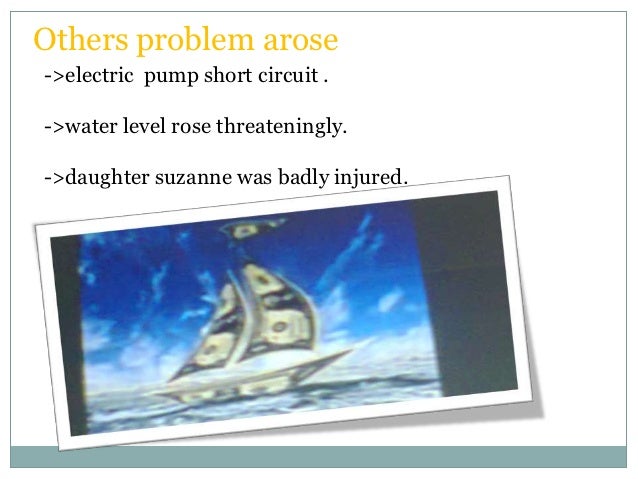
The night dragged on with an endless, bitterly cold routine of pumping, steering and working the radio. We were getting no replies to our Mayday calls — which was not surprising in this remote corner of the world.
Sue’s head had swollen alarmingly; she had two enormous black eyes, and now she showed us a deep cut on her arm. When I asked why she hadn’t made more of her injuries before this, she replied, “I didn’t want to worry you when you were trying to save us all.”
Mayday calls –words used to signal ships stuck in a disastrous situation through radio
By morning on January 3, the pumps had the water level sufficiently under control for us to take two hours’ rest in rotation. But we still had a tremendous leak somewhere below the waterline and, on checking, I found that nearly all the boat’s main rib frames were smashed down to the keel. In fact, there was nothing holding up a whole section of the starboard hull except a few cupboard partitions.
We had survived for 15 hours since the wave hit, but Wavewalker wouldn’t hold together long enough for us to reach Australia. I checked our charts and calculated that there were two small islands a few hundred kilometres to the east. One of them, Ile Amsterdam, was a French scientific base. Our only hope was to reach these pinpricks in the vast ocean. But unless the wind and seas abated so we could hoist sail, our chances would be slim indeed. The great wave had put our auxilliary engine out of action.
On January 4, after 36 hours of continuous pumping, we reached the last few centimetres of water. Now, we had only to keep pace with the water still coming in. We could not set any sail on the main mast. Pressure on the rigging would simply pull the damaged section of the hull apart, so we hoisted the storm jib and headed for where I thought the two islands were. Mary found some corned beef and cracker biscuits, and we ate our first meal in almost two days.
But our respite was short-lived. At 4 p.m. black clouds began building up behind us; within the hour the wind was back to 40 knots and the seas were getting higher. The weather continued to deteriorate throughout the night, and by dawn on January 5, our situation was again desperate.
When I went in to comfort the children, Jon asked, “Daddy, are we going to die?” I tried to assure him that we could make it. “But, Daddy,” he went on, “we aren’t afraid of dying if we can all be together — you and Mummy, Sue and I.”
I could find no words with which to respond, but I left the children’s cabin determined to fight the sea with everything I had. To protect the weakened starboard side, I decided to heave to — with the undamaged port hull facing the oncoming waves, using an improvised sea anchor of heavy nylon rope and two 22 litre plastic barrels of paraffin.
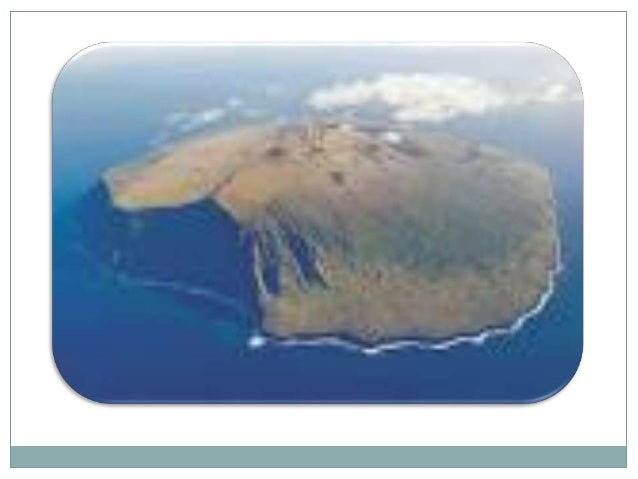
That evening, Mary and I sat together holding hands, as the motion of the ship brought more and more water in through the broken planks. We both felt the end was very near.
But Wavewalker rode out the storm and by the morning of January 6, with the wind easing, I tried to get a reading on the sextant. Back in the chartroom, I worked on wind speeds, changes of course, drift and current in an effort to calculate our position. The best I could determine was that we were somewhere in 150,000 kilometres of ocean looking for a 65 kilometre-wide island.
While I was thinking, Sue, moving painfully, joined me. The left side of her head was now very swollen and her blackened eyes narrowed to slits. She gave me a card she had made.
On the front she had drawn caricatures of Mary and me with the words: “Here are some funny people. Did they make you laugh? I laughed a lot as well.” Inside was a message: “Oh, how I love you both. So this card is to say thank you and let’s hope for the best.” Somehow we had to make it.
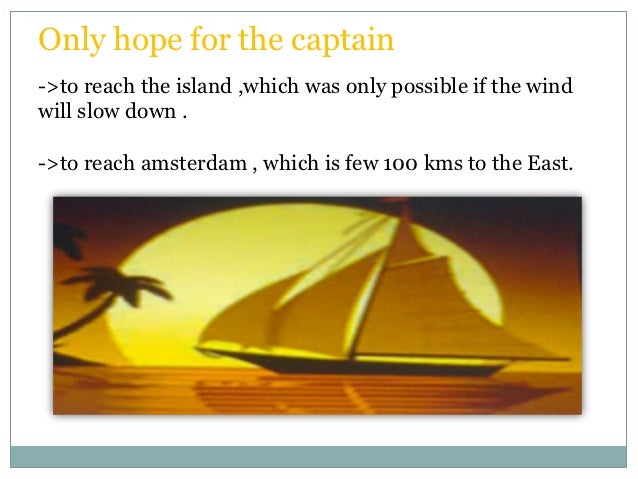
I checked and rechecked my calculations. We had lost our main compass and I was using a spare which had not been corrected for magnetic variation. I made an allowance for this and another estimate of the influence of the westerly currents which flow through this part of the Indian Ocean.
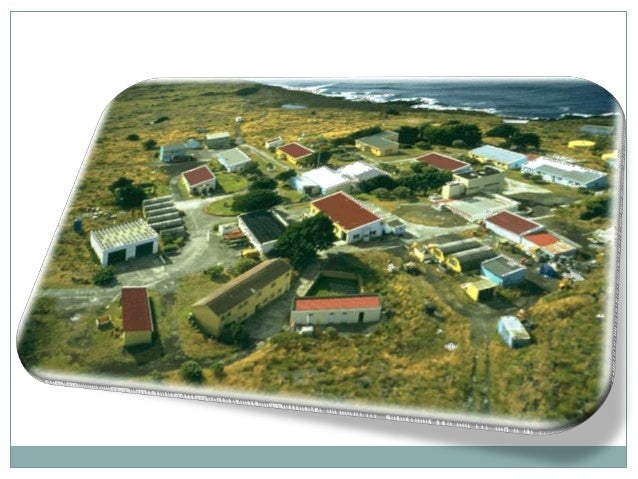
About 2 p.m., I went on deck and asked Larry to steer a course of 185 degrees. If we were lucky, I told him with a conviction I did not feel, he could expect to see the island at about 5 p.m.
Then with a heavy heart, I went below, climbed on my bunk and amazingly, dozed off. When I woke it was 6 p.m. and growing dark. I knew we must have missed the island, and with the sail, we had left, we couldn’t hope to beat back into the westerly winds.
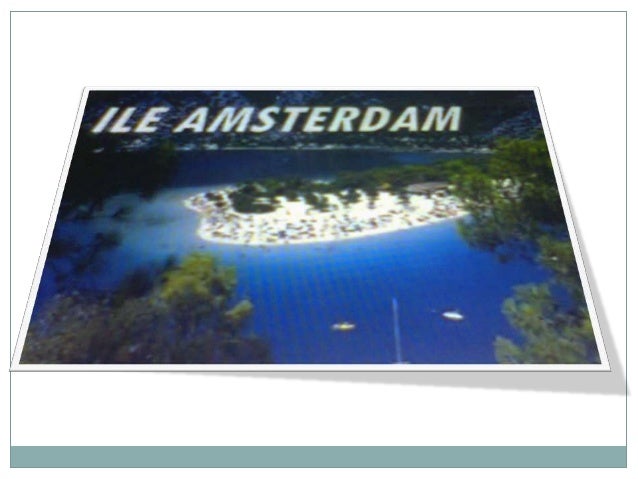
“Why am I getting a hug now?” I asked.
I rushed on deck and gazed with relief at the stark outline of Ile Amsterdam. It was only a bleak piece of volcanic rock, with little vegetation — the most beautiful island in the world!
We anchored offshore for the night, and the next morning all 28 inhabitants of the island cheered as they helped us ashore.
Text Book - Questions and Answers
(ii) to check the flooding of the water, the narrator put waterproof hatch which covered the gaping holes. This diverted the water flow to the side. His hand pumps were blocked due to debris and his one electric pump was short-circuited. He found a hand pump and a spare electric pump. He connected the electric pump to the out pipe and started it.
2. Describe the mental condition of the voyagers on 4 and 5 January.
Ans: On January 4, the voyagers felt relieved as they were continuously pumping out water for the past 36 hours and only a few centimetres of water was left. They had their first meal in two days. Mary found some corned beef and cracker biscuits.
Later, around 4 pm, the weather changed as black clouds marched towards them. The wind was now 40 knots and the sea was getting higher. The weather got worse and by the early morning of January 5, the situation was bad. This gave them mental stress.
3. Describe the shifts in the narration of the events as indicated in the three sections of the text. Give a subtitle to each section.
The third section: Victory
With the support of his children, the narrator kept trying to save the ship in order to reach the two small islands, lle Amsterdam. They finally reached the destination and got help from the inhabitants of the island. His son called him the best daddy and best captain.
Talking about the Text
1. What difference did you notice between the reaction of the adults and the children when faced with danger?
Ans: There was a huge difference between the reaction of the adults and the children. The adults lose their hope at the end and wait for their fate of death. On the other hand, the children were hopeful and gave the narrator moral support. With the support of his children, Jonathan and Suzanne, he decided to make it to the island at any cost. The children showed maturity. His son expressed courage as to how he wasn’t afraid to die if they all were together. His daughter made him a card expressing her love and affection towards her parents and wrote a beautiful message. She was injured still, she didn’t let it become a hurdle for her parents who were trying to save the ship.
2. How does the story suggest that optimism helps to endure “the direst stress”?
Ans: Optimism is the determination to overcome any challenges. Without optimism, it is impossible to face difficulties and solve problems. The family fought with the sea with great optimism and determination which ultimately saved them. Again and again, on being attacked by the sea, they didn’t stop trying which helped them get to the shore of the lle Amsterdam island.
When the son of the narrator told him,” we aren’t afraid of dying if we can all be together — you and Mummy, Sue and I”. This showed the maturity of the children and how they played an important role in motivating the narrator who had almost lost hope. Sue, his daughter who made him a card showed how she was proud of her parents and didn’t make a big deal of her injuries which were in a bad condition. With the struggles and efforts, they finally made it to the destination.
3. What lessons do we learn from such hazardous experiences when we are face-to-face with death?
Ans: Life is never about being happy all the time. We are constantly tested and how we tackle every problem and rise through it is the ultimate lesson. Such hazardous situations teach us how we should react towards them. We must never lose hope and keep trying as it will lead to success. In certain situations, one must keep calm and think logically. No matter how bad the situation is, there is always a way to get out of it. The significance of being extra cautious and to make sure that the situation doesn’t get worse is required at such moments.
4. Why do you think people undertake such adventurous expeditions in spite of the risks involved?
Ans: The willingness to accept challenges drives people to take such adventurous expeditions in spite of the risk involved. People like to try different elements of nature and some do it as a passion. Surely people already know of the risks involved in such activities, but still, they do not hesitate to try it out.
Grammar Exercises
Thinking about Language
1. We have come across words like ‘gale’ and ‘storm’ in the account. Here are two more words for ‘storm’: typhoon, cyclone. How many words does your language have for ‘storm’?
Ans: In Hindi, there are many words for ‘storm’ – toofan, aandhi, andhad, etc.
2. Here are the terms for different kinds of vessels: yacht, boat, canoe, ship, steamer, schooner. Think of similar terms in your language.
Ans: ‘Kashti’, ‘Naav’, ‘Nauka’, ‘Jahaz’ are some terms in Hindi.
3. ‘Catamaran’ is a kind of a boat. Do you know which Indian language this word is derived from? Check the dictionary.
Ans: The word ‘Catamaran’ is derived from the Tamil language word ‘Kattumaram’.
4. Have you heard any boatmen’s songs? What kind of emotions do these songs usually express?
Ans: Yes, Such Boatmen songs express love and nostalgia. They also express the longing to meet the loved ones.
Working with Words
1. The following words used in the text as ship terminology are also commonly used in another sense. In what contexts would you use the other meaning?
| knot | stern | boom | hatch | anchor |
2. The following three compound words end in -ship. What does each of them mean?
| airship | flagship | Lightship |
3. The following are the meanings listed in the dictionary against the phrase ‘take on’. In which meaning is it used in the third paragraph of the account:
| Take on sth: | to begin to have a particular quality or appearance; to assume sth |
Take sb on: | to employ sb; to engage sb |
Take sb/sth on: | to decide to do sth; to allow sth/sb to enter e.g. a bus, plane or ship; to take sth/sb on board |

Comments
Post a Comment